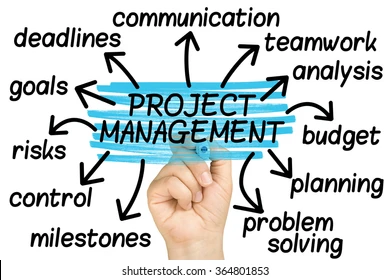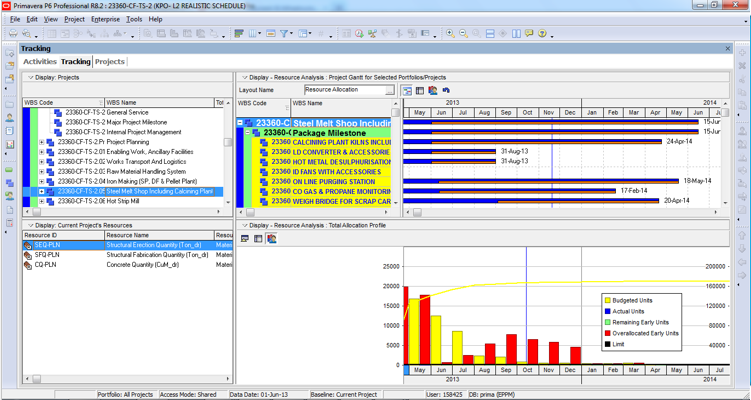Project Management
Project management is a discipline that involves planning, organizing, and overseeing the execution of a project from its initiation to completion.
It encompasses a set of skills, tools, and techniques that project managers use to meet the project's goals and objectives efficiently.
What we do in project management is:
Project Initiation:
This phase involves defining the project at a broad level, and identifying its goals, purpose, and feasibility.
Project initiation often includes creating a project charter, which outlines the project's scope, objectives, stakeholders, and initial requirements.
Project Planning:
In this phase, detailed planning is undertaken.
We create a comprehensive project plan that includes defining tasks, establishing timelines, setting budgets, allocating resources, and identifying potential risks.
This phase also involves developing a project schedule and defining the project team's roles and responsibilities.
Scope Management:
Managing and controlling the project scope is crucial to ensure that the project stays on track.
This involves defining what is and is not included in the project and managing changes to the scope throughout the project life cycle.
Time Management:
We develop a schedule that outlines the sequence of tasks and their duration.
Time management includes creating a timeline, setting milestones, and tracking progress to ensure that the project stays on schedule.
Cost Management:
This involves estimating, budgeting, and controlling costs throughout the project life cycle.
We ensure that the project is completed within the approved budget, and they must monitor and control expenses.
Quality Management:
We ensure that project deliverables meet the specified standards and expectations. This involves defining quality criteria, performing quality assurance, and implementing quality control measures.
Risk Management:
Identifying and managing risks is a critical aspect of project management.
We assess potential risks, develop risk mitigation strategies, and monitor and control risks throughout the project.
Communication Management:
Effective communication is crucial for project success.
We establish communication plans, ensuring that information is shared appropriately among team members, stakeholders, and other relevant parties.
Human Resource Management:
This involves acquiring, developing, and managing the project team.
We assign tasks, motivate team members, resolve conflicts, and ensure that the team is working effectively towards project goals.
Procurement Management:
For projects that involve external resources or vendors, procurement management is necessary.
This includes sourcing, selecting, and managing external suppliers, contracts, and procurement processes.
Successful project management requires a combination of technical skills, leadership abilities, and effective communication.





